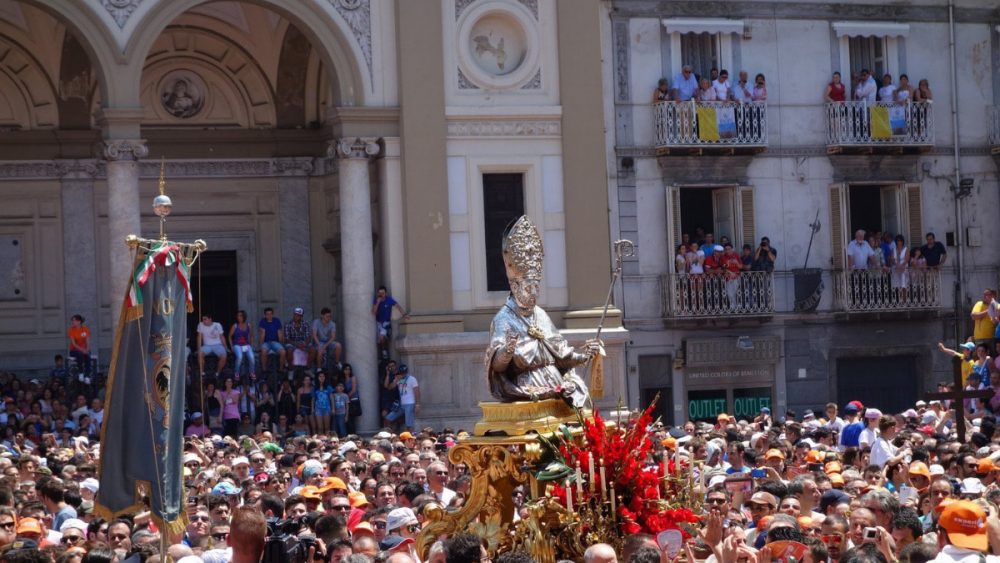Rev. José Mario O. Mandía
We now move to the south of Italy, where we come across St Paulinus of Nola. He was actually born in Bordeaux, to a distinguished family in 354 AD. There he received an excellent literary education from the poet Ausonius.
He first pursued a career in politics. Migrating down to Italy, he became Governor of Campania at a young age and he was admired because of his wisdom and gentleness. “It was during this period that grace caused the seed of conversion to grow in his heart. The incentive came from the simple and intense faith with which the people honored the tomb of a saint, Felix the Martyr, at the Shrine of present-day Cimitile. As the head of public government, Paulinus took an interest in this Shrine and had a hospice for the poor built and a road to facilitate access to it for the many pilgrims” (Benedict XVI, General Audience, 12 December 2007).
Public life, however, did not make him happy. He lost favor with the political authorities and this led him to realize the vanity of earthly power and possession. Later on, he would write: “The man without Christ is dust and shadow” (Carm. X, 289).
His search for meaning in life led him to Milan, where he attended the school of Saint Ambrose. He returned to Bordeaux and completed his preparation for baptism which was administered by Bishop Delphinus of Bordeaux. His tutor Ausonius was unhappy with his decision, but it did not mean that Paulinus abandoned poetry. Instead, he focused his themes on more lofty ideals. “To my mind the only art is the faith, and Christ is my poetry” (“At nobis ars una fides, et musica Christus”: Carm., XX, 32).
He then married a devout Spanish lady, Therasia, and lived with her in his wife’s estate in Spain. They had a son who died just a few days after birth. This led him to think that God wanted him to take a different path. So he spoke with his wife and they decided to sell their possessions and use them to help the poor. Then they left Aquitaine and settled in Nola where husband and wife lived in chaste companionship which led other people to join them in a community.
His edifying life was probably what led Lampius, bishop of Barcelona, to ordain him on Christmas Day in 393 or 394, despite Paulinus’ resistance. His life in the community did not stop him from caring for pilgrims. His concern for the people under his care led to his election as bishop of Nola in 409. He intensified his pastoral activity, especially caring for the needy and making room for them in the monastery. He was “a Bishop with a great heart who knew how to make himself close to his people in the sorrowful trials of the barbarian invasions” (Benedict XVI, General Audience, 12 December 2007).
So striking and attractive was his practice of virtue that Saints Augustine, Jerome, Melania, Martin, Gregory and Ambrose praised him in the letters they exchanged with him.
Saint Paulinus not only understood the importance of an exemplary life. He also knew that beauty was an important tool for evangelizing. This led him to undertake building works in 402 and 403. “He desired to express this very concept by enlarging the Shrine with a new basilica, which he had decorated in such a way that the paintings, described by suitable captions, would constitute a visual catechesis for pilgrims. Thus, he explained his project in a Poem dedicated to another great catechist, St Nicetas of Remesiana, as he accompanied him on a visit to his basilicas: ‘I now want you to contemplate the paintings that unfold in a long series on the walls of the painted porticos…. It seemed to us useful to portray sacred themes in painting throughout the house of [Saint] Felix, in the hope that when the peasants see the painted figure, these images will awaken interest in their astonished minds’ (Carm. XXVII, vv. 511, 580-583). Today, it is still possible to admire the remains of these works which rightly place the Saint of Nola among the figures with a Christian archaeological reference” (Benedict XVI, General Audience, 12 December 2007).
Saint Paulinus died in Nola on 22 June 431.


 Follow
Follow


